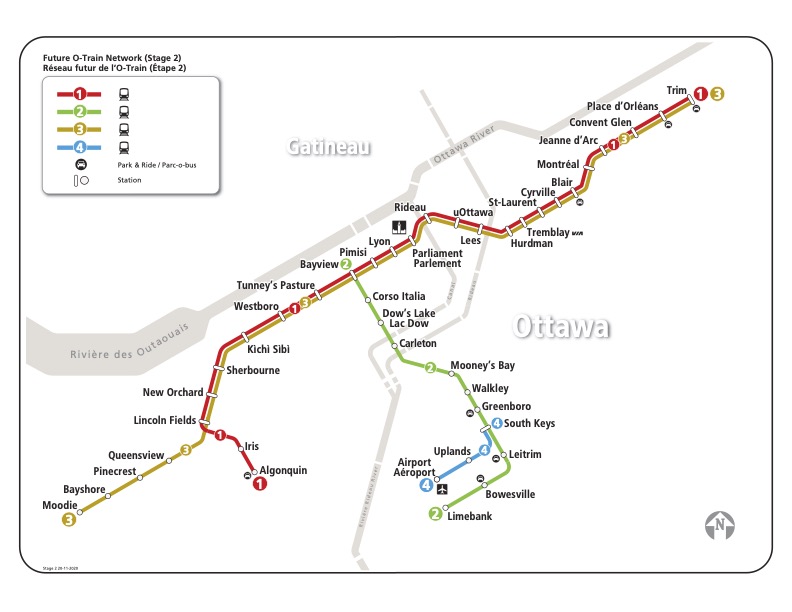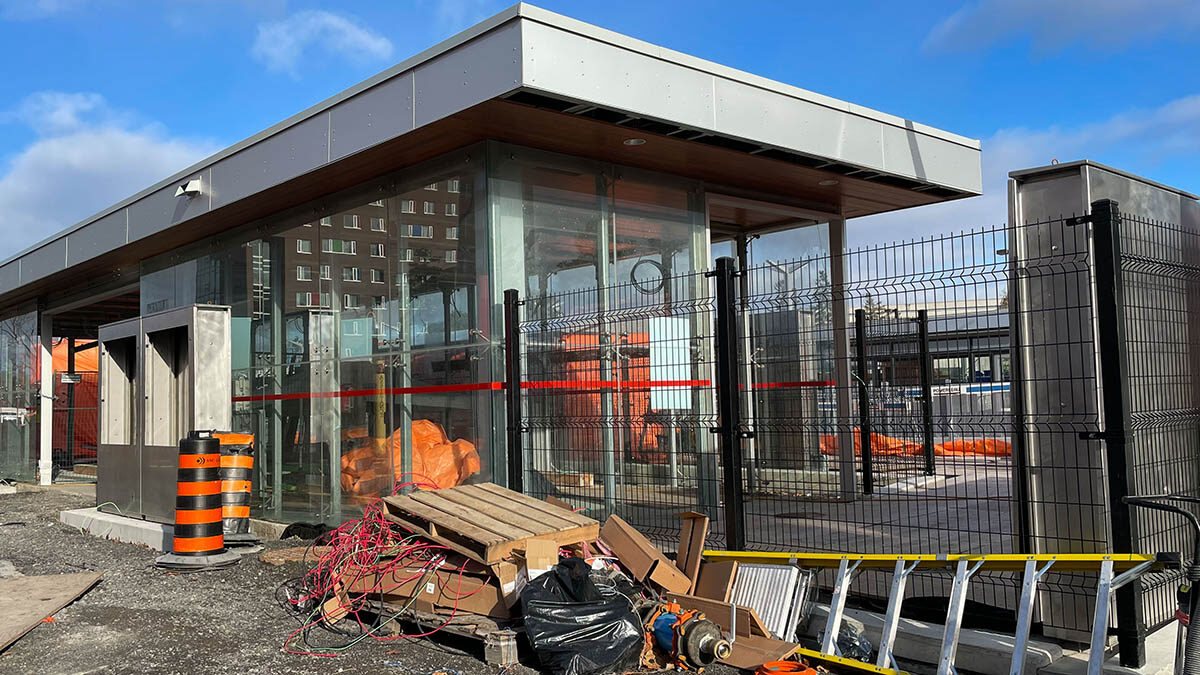Long-time observers of Ottawa’s troubled light-rail system say the city now needs to focus on regaining trust after last month’s highly critical report about the problems with the Confederation Line.
Commissioner William Hourigan’s report said companies and city officials made “egregious” errors building and maintaining the LRT, including rushing the rail into service, leading to instances of “grievous public mistrust.”
The Rideau Transit Group, the consortium responsible for the line’s construction and maintenance, “knowingly gave inaccurate information” about construction deadlines, according to the report. It also said top city officials lowered testing requirements for the light-rail line during its final testing phase, without telling most of city council or the public.
Jamie Tait-Glossop, a lifelong Ottawa resident and transit user says that, after three years of trains with faulty gears, flat wheels, malfunctioning doors and two derailments, she isn’t surprised by the report’s findings.
“But it’s even more disappointing than I initially thought,” she said. “It’s not just because of incompetence. It’s been because of corruption and mismanagement.” (The inquiry report did not find corruption but did speak of “malfeasance.”)
Tait-Glossop said she sympathizes with the challenge of providing service to a city with a large suburban sprawl. Here’s how she said the city can win her trust: “They don’t need to do anything fancy. They just need to be genuinely reliable and a good form of transit for a few years.”
Making transit more affordable would also help improve public trust, she added. OC Transpo users temporarily rode for free last December after the Confederation Line was suspended for 54 days in the fall. It is not clear what will happen to fares in 2023.
Duff Conacher, co-founder of Democracy Watch, a Canadian watchdog and advocacy group for government accountability and corporate responsibility, says the behaviour of top city staff was “a fireable offence.”
“City staff hiding things from council, let alone the public, is serious enough that I think those people should lose their jobs,” he said. “We’re talking about a public transit system. It’s extremely dangerous to lower the standards and even more dangerous to keep that a secret.”
City manager Steve Kanellakos resigned just before the report’s release. Former mayor Jim Watson, who did not run for re-election this year, recently released a statement, writing that “at the end of the day, I take full responsibility for the project’s shortcomings.”
“Secrecy in government is a recipe for corruption, waste and abuse of the public interest.”
– Duff Conacher, co-founder of Democracy Watch.
“There’s a lot to do to clean house at Ottawa city hall in order to restore the public’s trust,” former citizen transit commissioner Sarah Wright-Gilbert said recently.
“This report is not just an indictment of senior, quasi political and political people within the City of Ottawa,” Wright-Gilbert said. “This report is an indictment of city staff at the senior levels.”

Restoring trust
Conacher said building public trust “isn’t rocket science.” He outlined five elements that he believes builds public trust: honesty, avoiding even the appearance of conflicts of interest, preventing waste, making representative decisions and full transparency.
“Secrecy in government is a recipe for corruption, waste and abuse of the public interest,” he said. The way to recovery, according to Conacher, is ensuring city officials go beyond the minimum requirements for transparency set by the law.
“These people are working for the public. The public has a right to know what they’re doing every minute of their workday.”
He also said the city must ensure public wrongdoing is properly penalized, and fire those involved.
“The penalties for bad government behaviour are weaker than for any other profession,” he said. “There is no penalty for violating the requirement to have open meetings at city council, no penalty for violating lobbying restrictions that have been put in place.”
The light-rail report also startled bus users. Uzoma Iroche uses the bus to rush from work to class. Iroche said she hasn’t noticed much change in bus service over the past few years, but said she found the lack of transparency around LRT “scary.”




